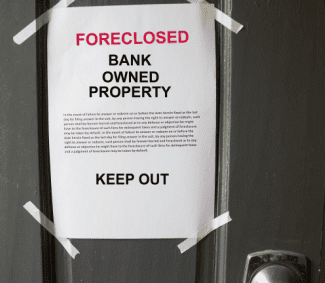5 Pitfalls You May Encounter If You Renovate Without a Permit

If you’re thinking of renovating, you’ve probably already realized that it’s a long road from “brilliant vision” to “completed new addition.” Once you’ve found the architect or contractor who’ll bring your ideas to fruition, it’s time to think about permits.
We know, we know: Who wants to deal with one more time-consuming and costly step? And what if your local building department rejects your plans and you have to start over again?
“Over the last several years, the process has become time-consuming and somewhat costly,” explains Joanne Intieri, a real estate agent with Douglas Elliman. As such, “Many homeowners want to move ahead on interior renovations without permits because they feel the local municipalities will never catch wind of it.”
While it might be tempting to skip this part of the process, you can find yourself encountering more headaches should you ignore it. While the legal requirements for permits depends on your jurisdiction and the nature of the renovation, here are five pitfalls you may encounter if you try renovating without a permit. In other words: Don’t renovate without one!
1. You may be fined or issued a stop-work order
While it’s easy to think you’ll slide under the radar or face nothing more than a slap on the wrist if you’re caught, it’s actually much more serious than that.
“Your municipality could issue a stop-work order,” Intieri explains. “This may also result in a substantial fine for the homeowner and contractor. Unfortunately, more times than we wish to talk about, the renovation completed by a contractor comes to the attention of the building department when an individual decides to sell their home.”
This brings us to the next stumbling block homeowners can experience…
2. You may blow a potential sale
“Not getting permits for home renovations can get particularly dicey once you attempt to sell your home,” says Leigh McAlpin of Dwelling. For one, “Nonpermitted additions, particularly those that are not up to code, cannot be included in the square footage listed when you put your home on the market.”
In other words: Even if you made a huge addition to your house, the smaller square footage is what you’ll have to list, which means your home will appear to be much smaller in your listing than it really is.
Then, of course, there’s how potential buyers will react when they hear your house has had unpermitted work done.
“First, it causes prospective buyers to become uncertain about the quality of the work throughout the home, unpermitted and permitted alike,” says Antoine Dean with Living Room Realty. “It can create a red flag in the buyer’s mind, causing them to look at everything through a magnifying glass. This can cause uncertainty and the buyer could lose confidence to move forward with the purchase.”
3. Your home may plummet in value
Even if buyers turn a blind eye to unpermitted renovations, that doesn’t mean other pros in the home-buying process will, too.
“It can cause appraisers to drop the value of your home and depreciate the value of the work that has been done,” Dean continues. “The appraiser can simply require that the work be completely removed and redone, with permits. The appraiser’s job is to protect the interest of the bank, so if the appraiser’s requests aren’t met, the bank could choose not to fund the loan, which could kill the deal.”
4. Your home insurance policy may not apply
Furthermore, unpermitted renovations might violate your home insurance policy. Let’s say the work was done incorrectly and, as a result, faulty electric work sparks a house fire. The damage caused may not be covered, leaving you with a costly nightmare.
5. You might get lower quality workmanship
Permits are also a simple way to keep your contractors in line and doing their best work.
“When your contractor knows that permits are required, along with the detailed inspections that follow, they are more likely to complete the job in a more thorough, professional manner,” explains McAlpin. “Their work will be completed with the knowledge that—in addition to making the client happy—their work has to be up to code and pass all inspections.”
Skip the permits, and who knows what a contractor might let slide?
Source: realtor.com















 Accessibility
Accessibility